New Home, just south of the Lubbock County line, is an example of a coming crisis in Texas, State Senator Charles Perry told Lubbock Lights. The mayor of New Home agrees.
New homes south of New Home do not have access to a reliable water supply. Other communities all over the state will soon face similar scenarios, Perry said.
“Absolutely, we are a cautionary tale,” said Brad Emert, mayor of New Home. “We’ve, to some extent, put ourselves into this position.”
Emert spoke to Lubbock Lights after the South Plains Conservation Water Roundtable Friday afternoon at the Lubbock Memorial Civic Center. It was a gathering of county and small-town leaders hosted by Lubbock Mayor Tray Payne. Perry, the featured speaker, said Texas does not have enough water unless things change dramatically – including expensive water projects and big conservation efforts.
“Water is the least talked about and the least urgent conversation. The reason you don’t have people asking you to explain the issue in town halls is because they just assume that Texas will never, ever let the taps run dry,” Perry said.
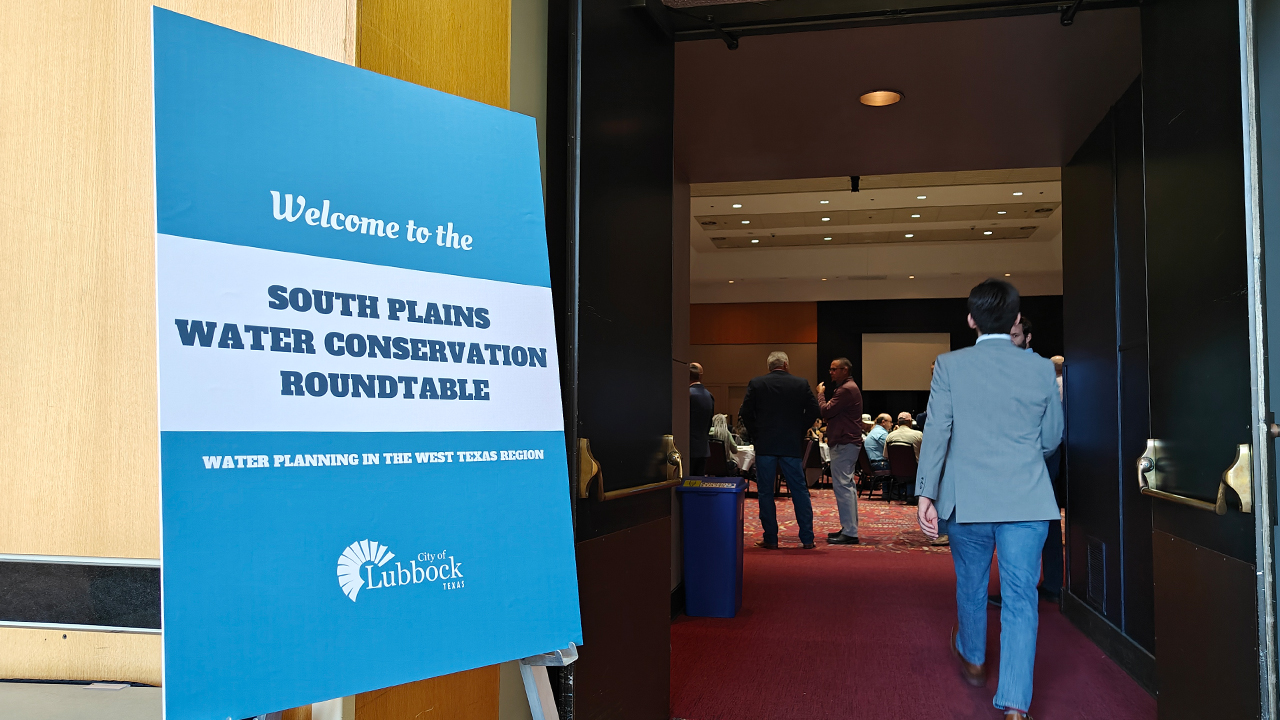
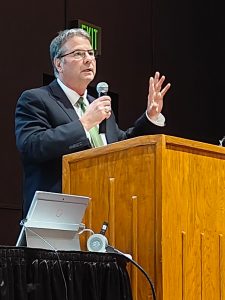
Emert knows it well. He asked during the meeting what Texas could do to help. The answer? For many communities in Texas, help is on the way if Proposition 6 passes on the November 7 ballot. But not for those living just outside New Home.
Texas will spend money, if voters approve Prop 6, to help communities make the most of their current water supplies and tap into water sources. But without a reliable supply to begin with, the state runs dry on solutions, Perry told Emert.
After the meeting, Perry said of New Home, “That is a little bitty subset of what I’m seeing in the Hill Country where the population is extending way beyond the groundwater source.”
“There’s literally people building communities and moving into communities, having their wells run dry,” Perry said.
Besides Prop. 6, there are other things that can help:
- Lubbock had great success with conservation – primarily by making it hurt in the pocketbook if people use too much water.
- There’s conversation about water supply districts and asking developers to have a water plan before they build.
- Towns might not be wise in selling their water.
What Proposition 6 would do
Proposition 6 sets aside $1 billion for water projects in Texas.
At least $250 million would be set aside for water projects in communities with less than 150,000 people. Those projects would prioritize aging infrastructure, or as Perry said, “leaky pipes.”
Under Prop. 6, the Texas Water Development Board will finance new projects to produce nearly 2.3 trillion gallons of water by the end of 2033.
Some of that new water supply will come from desalinization of ocean water from the Gulf of Mexico and desalinization of salty groundwater all over Texas. The state will finance – in some cases with low-interest loans – water, wastewater, stormwater and water recycling projects. There are also education and conservation initiatives.
Save 1 gallon, save 30 million gallons
If every Texan could save one gallon today, it would preserve 30 million gallons for tomorrow, Perry said. The state’s population is just above 30 million people. He suggested taking shorter showers, turning off the water while brushing teeth and the obvious ways to be more careful with water.
But it’s much bigger than that.
“We lose 150 billion gallons of water a year, through leaking and from infrastructure. Seventy percent of the pipes in the ground are over their estimated useful lives,” he said.
When sharing is not a good thing.
Perry was critical of towns sending water to another community and then discovering it was a bad idea. Two communities run out of water – not just one.
“Our current water model in Texas is: one community has it, another community needs it,” Perry said. One city sells water to another.
“When you do that, you export the future of that community out. You have people that live in areas that need the water and no longer have it. … Texas looks like a third world country,” he said.
Lubbock is different
Payne told his fellow West Texas community leaders the first conversation about Lake Alan Henry started in 1971. It got serious in 1975.
“Basically from 1975 to 2012 – that’s how long it took from start to completion,” until the pipeline to Lubbock was opened. “If you don’t plan that far in advance, you’re already behind,” Payne told the group. Lake Alan Henry is roughly one-third of Lubbock’s water supply.
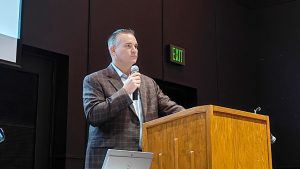
“We spent over half a billion dollars just in the last 20 years on a couple of projects,” Payne said. It wasn’t just big-money projects.
Lubbock also cut back on water usage – a lot.
A week before the roundtable, Aubrey Spear, water utilities director, spoke with Lubbock Lights.
“In the last 22 years, our per capita usage – overall usage in the city – has dropped 32 percent,” Spear said. “At one time, we were over 220 gallons per capita per day.”
Last year, it was down to 134 gallons per day for every person in Lubbock. Some of the daily water use is for local industry. Take only residential use and the number falls to between 70 and 80 gallons per person every day.
Lubbock dropped its water use using a carrot-and-stick approach but without the carrot.
“But I think the economic incentive is very important and powerful,” Spear said. Lubbock changed the water bill. There used to be a per gallon discount, just like you might expect on other goods and services. The more you buy, the more you save.
In 2007, Lubbock set up a block rate system. The more you use, the more you pay.
“You get kicked up in the higher block and pay more,” Spear said.
“We started to hit the pocketbook so people could make that economic decision,” Spear said. “Do I really want to use that water – that next gallon of water or not?”
“If we analyze our water consumption and where the water goes, most of it’s due to irrigation during the summers,” Spear said. Irrigation, in this case, means watering the grass.
Lubbock restricts yard watering to certain days and times. Most of the water savings came from less water dumped out into people’s yards.
Wolfforth water woes too
Randy Criswell, Wolfforth city manager, attended the roundtable.
“There’s a lot of stuff being done in the county, and there’s not going to be enough water supply. And eventually that’s going to be a problem,” Criswell said.
Even if new developments remain outside of Wolfforth, it’s still a problem. Most of the city’s water comes from wells. If new houses nearby also draw upon well water, the city wells might run dry.
Criswell would like to see the creation of water supply districts or something like that so that smaller towns can pull together and get water. In June, Wolfforth signed a 25-year contract with Lubbock for water.
Criswell knows about the problem in New Home. It’s one he would like to avoid. He said developers in Wolfforth will be asked to bring water supply plans right alongside the plans for new homes.
Back to New Home
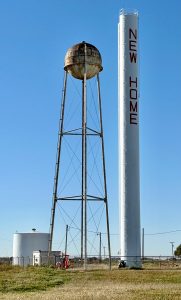
There are multiple subdivisions going in north, east and south of the community, Emert said.
“There are already homes that are having to put in multiple wells and holding tanks just so they have the ability to take a shower, much less do anything else, because their initial well or their initial two wells are already running dry,” Emert said.
New Home is one mile by one mile and supports roughly 340 people.
“We have 171 water meters,” Emert said. And while the city can handle those, at least for now, some of those new homeowners would like to be annexed into the city.
Yes, it would be higher taxes. The new homes near New Home range from $350,000 to $3 million, Emert said. But it would also be a chance to use the city’s water. And that’s a problem.
“Our stable water source will only support currently our city and no other annexation at this time,” Emert said.
The city could use the additional tax money to beef up its water supply. But it does not have the water supply to accept the homes onto the tax rolls.
At some point, New Home might need to bring in water on trucks. Another possibility in 15 to 20 years is if Lubbock keeps growing to the south, then maybe New Home can be annexed into Lubbock.
“That’s the one that I would like to discuss with the mayor, Tray Payne, at some point,” Emert said.
And if Texas does not get out in front of water supply soon, will other communities have the same problem?
“I absolutely interpret it the same way,” he said.
Still to Come
Lubbock Lights talked with one of the homeowners near New Home. Check back for a first-hand account of the situation Emert and Perry described — a situation that hits close to home in Lubbock.

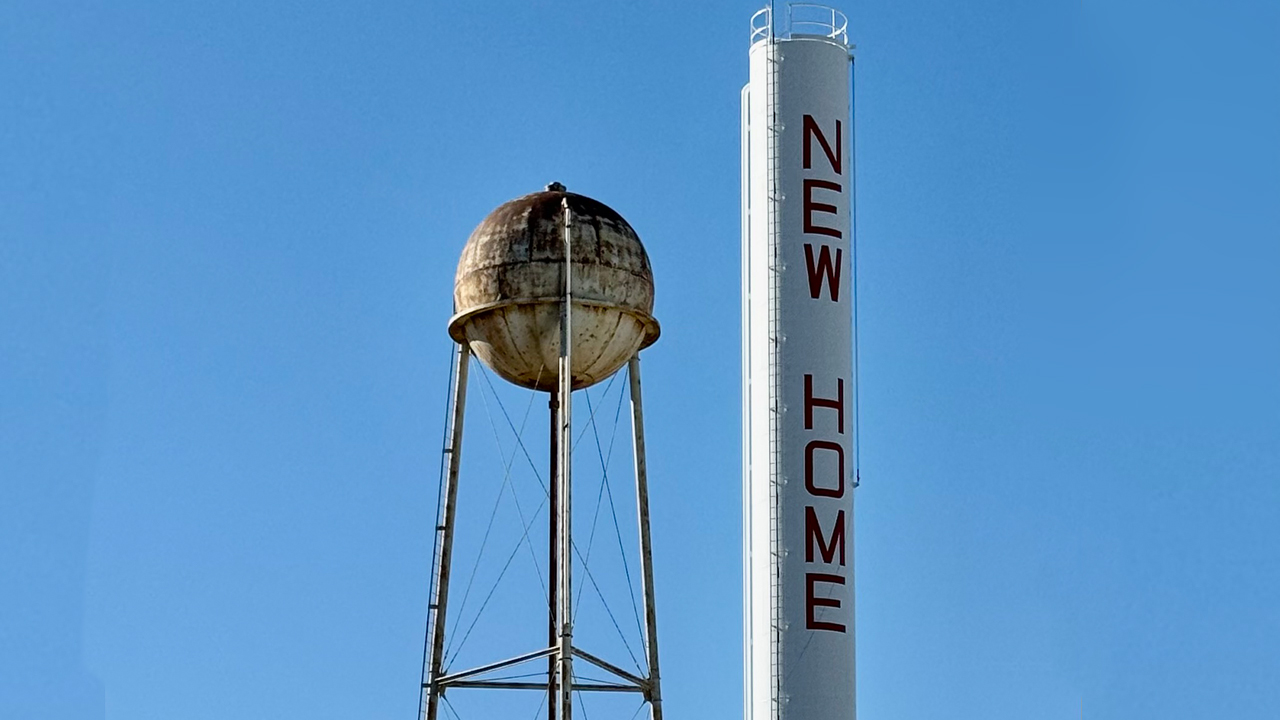
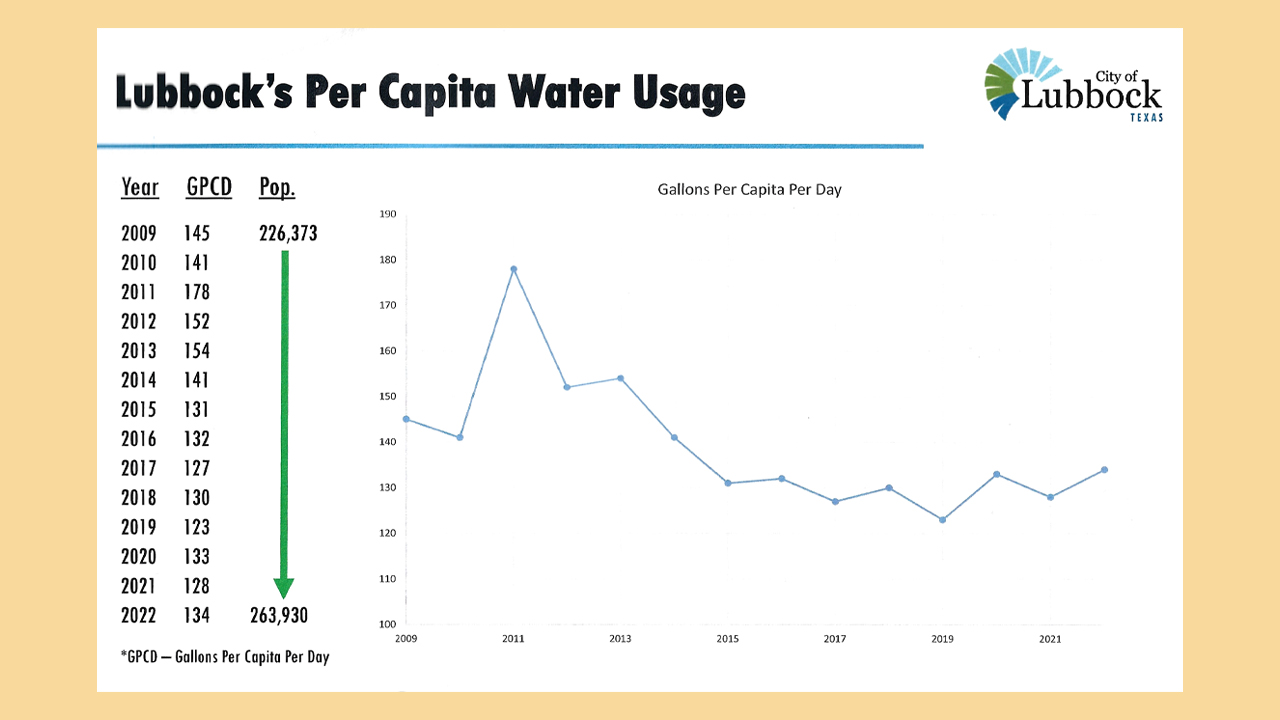
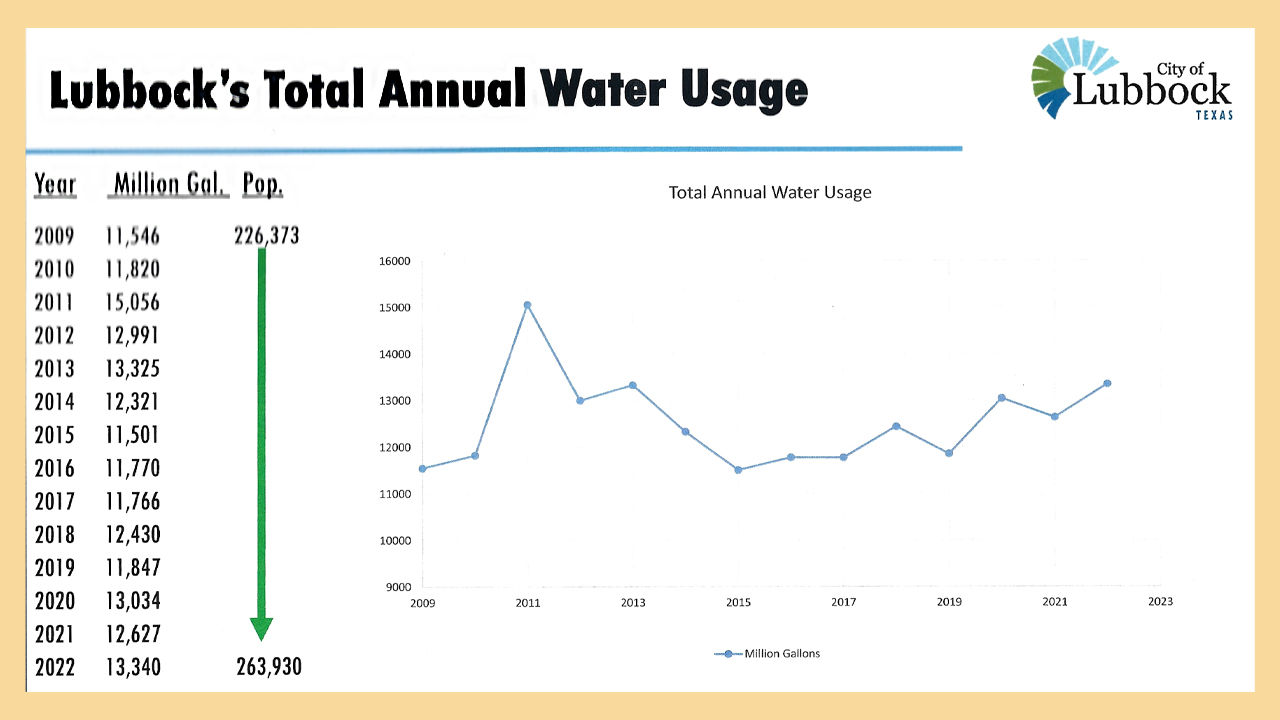
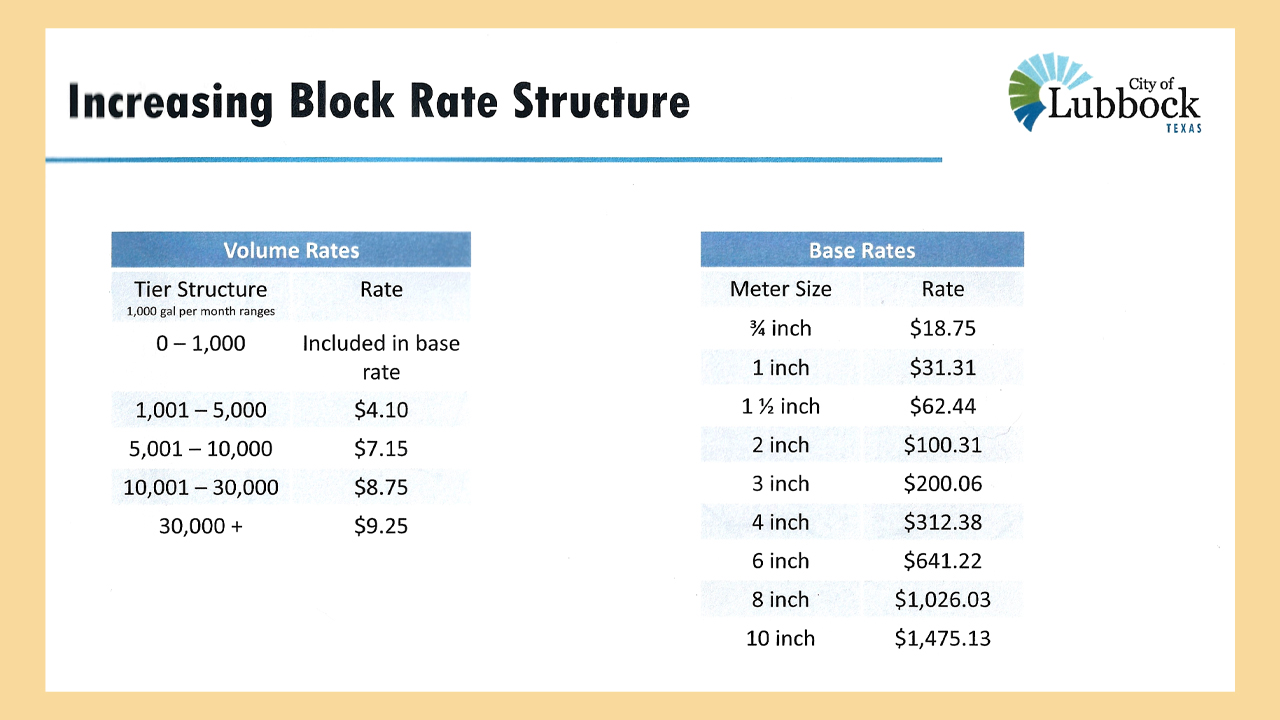
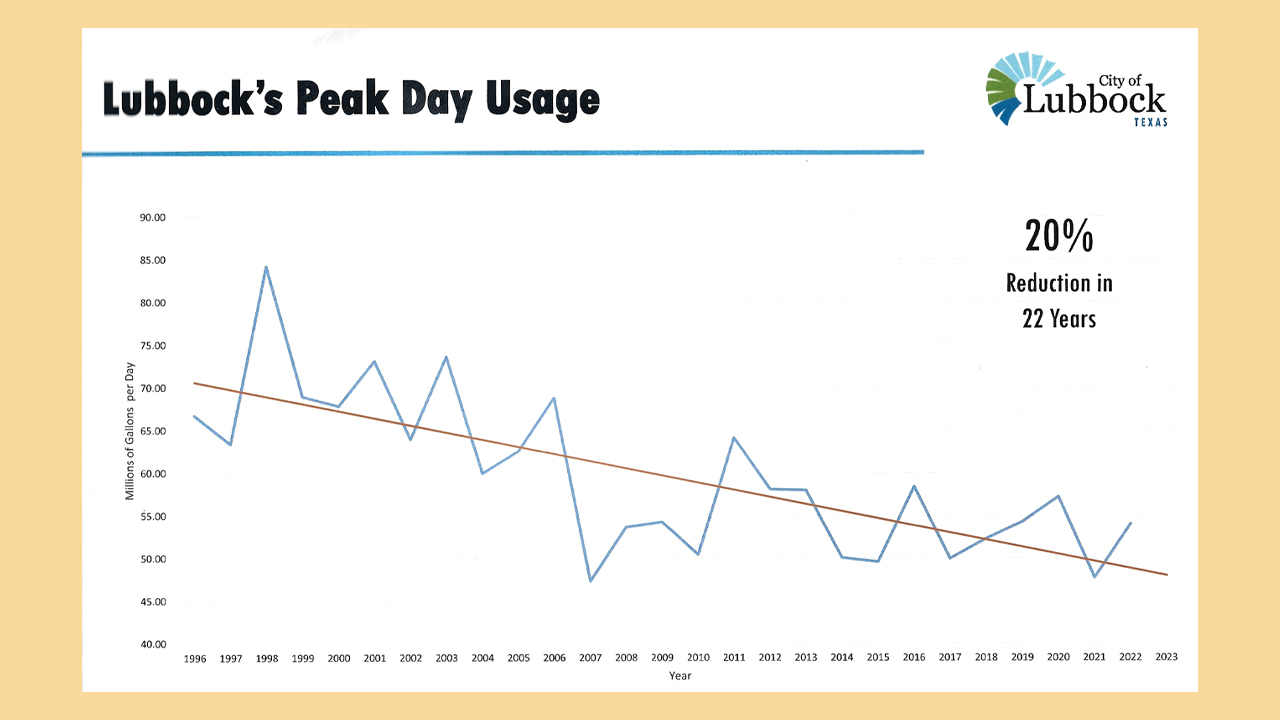
 Facebook
Facebook